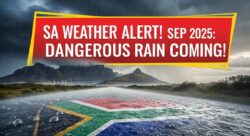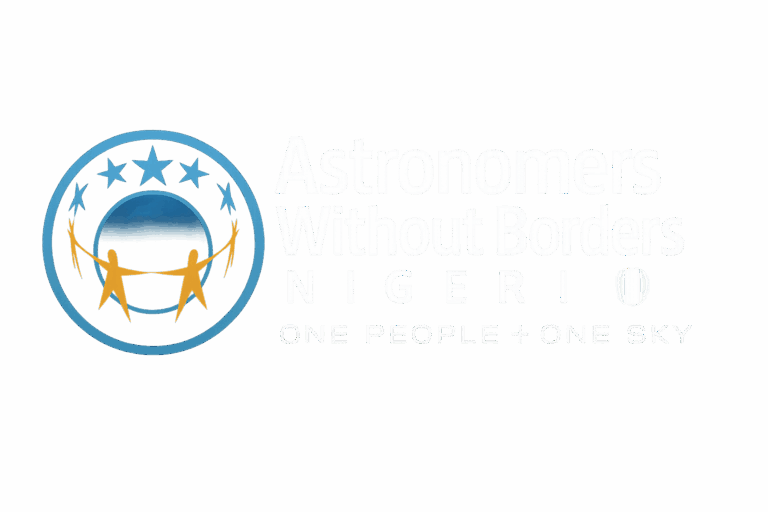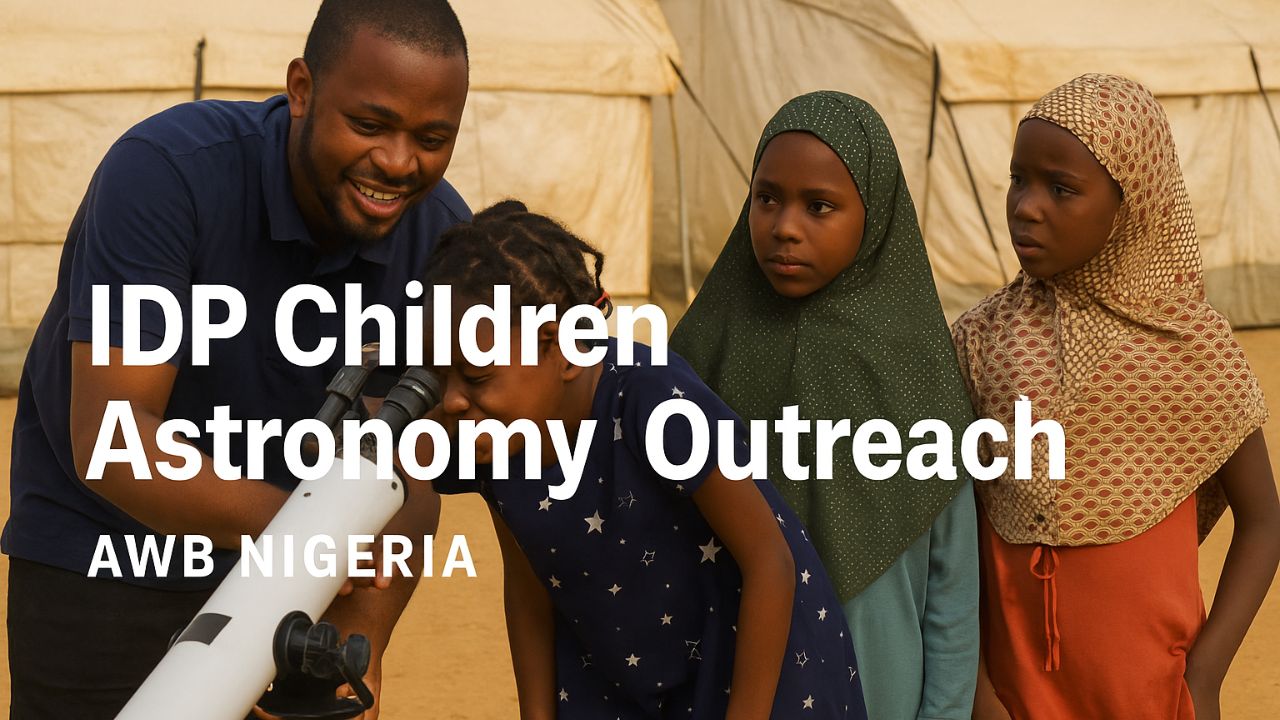In a groundbreaking initiative rooted in compassion, education, and equity, Astronomers Without Borders Nigeria (AWB Nigeria) launched the “IDP Children Astronomy Outreach Project,” aimed at introducing the wonders of space science to children living in Internally Displaced Persons (IDP) camps across Nigeria.
For many of these children, life has been marked by conflict, displacement, and uncertainty. But on this day, the night sky became their classroom—and the stars, their source of hope.
Project Overview
The IDP Children Astronomy Outreach Project was conceived to bring meaningful STEM (Science, Technology, Engineering, and Mathematics) engagement to displaced children. AWB Nigeria believes that access to science and knowledge should not be a privilege but a universal right, regardless of location, background, or circumstance.
 South Africa Weekend Weather September 2025 – Provinces Alerted of Dangerous Rain Conditions
South Africa Weekend Weather September 2025 – Provinces Alerted of Dangerous Rain Conditions
With thousands of children in Nigeria currently living in IDP camps due to regional conflicts, banditry, or natural disasters, this project aimed to:
- Spark curiosity about space and science.
- Offer emotional healing through educational interaction and wonder.
- Empower children with knowledge, hope, and inspiration.
- Encourage resilience and interest in learning through play and discovery.
Bringing Astronomy to the Camps
The outreach began with a visit to select IDP camps in Abuja and Borno State, with plans to expand to others in the North-Central and North-East regions. Volunteers from AWB Nigeria set up temporary outdoor learning centers equipped with:
- Telescopes for solar and night-time viewing.
- Educational banners and visual guides about the solar system, stars, and planets.
- Interactive games and storytelling related to constellations and astronomy myths.
- Arts and crafts activities where children created their own planets and drew galaxies.
The event was filled with excitement and joy as children gazed through telescopes for the very first time. For most, it was their first real exposure to structured science education outside of textbooks.
Activities Included:
- Telescope Time – Observing the Moon, Venus, and bright stars using safe, easy-to-use telescopes.
- Ask a Scientist – A Q&A session where children asked, “Why do stars twinkle?”, “Can I go to the Moon?”, and “Is there water on Mars?”
- Build a Solar System – A hands-on activity where children made model solar systems using clay and paper.
- Story Under the Stars – Educators told African folk tales about the stars, blending culture and science beautifully.
Transformational Impact
The outreach had an immediate emotional and educational impact. Laughter, wonder, and questions filled the air. Children who had been quiet or withdrawn began interacting, asking questions, and sharing their thoughts about space.
One 12-year-old girl named Halima, displaced from her hometown by conflict, said, “I never knew the stars had names. I want to be someone who works with stars one day.”
Another boy, Musa, age 10, whispered to a volunteer, “Can I build something that goes to space?” The volunteer replied, “Yes—you absolutely can.”
Teachers and guardians at the camps were overwhelmed with gratitude. Many expressed a desire to have continuous learning sessions and even set up small “Sky Clubs” within the camps.
Why This Matters
Internally displaced children often suffer from trauma, disrupted education, and low self-esteem. AWB Nigeria’s initiative not only offers a learning opportunity but also:
- Restores dignity through intellectual empowerment.
- Shows children that they are not forgotten.
- Encourages them to dream beyond their immediate environment.
- Connects them to the global movement of space exploration and unity.
Astronomy becomes more than science in these moments—it becomes healing.
Partnerships and Future Expansion
The project was made possible through collaboration with:
- Camp administrators and humanitarian aid agencies.
- Volunteer scientists, educators, and AWB Nigeria staff.
- Donations from astronomy clubs and science centers worldwide.
AWB Nigeria plans to expand this initiative by
- Developing a mobile astronomy kit specifically for humanitarian zones.
- Creating illustrated astronomy books in Hausa and other local languages.
- Establishing a traveling “Sky School” for underserved communities.
The IDP Children Astronomy Outreach Project proves that even in the darkest of circumstances, the stars can shine brightly—especially in the eyes of children. With every telescope view, every question asked, and every dream sparked, AWB Nigeria reaffirms its belief that the sky belongs to everyone.
In these camps, hope now rises with the constellations. And with continued support, these young dreamers may one day become Nigeria’s future astronauts, engineers, or astrophysicists.
 September 2025 R12,500 Youth Grant – Application Window Open With Step-by-Step Instructions
September 2025 R12,500 Youth Grant – Application Window Open With Step-by-Step Instructions
Frequently Asked Questions
Q1: Why astronomy for displaced children?
Astronomy encourages curiosity, imagination, and hope—key emotional and intellectual traits for children experiencing trauma or displacement. It opens up a universe of possibilities, both literally and figuratively.
Q2: Are the children able to understand complex space concepts?
Yes. The sessions are customized for their age and background using storytelling, visuals, and hands-on learning. Children grasp basic space ideas surprisingly quickly when they are taught in a fun, engaging way.
Q3: How often does AWB Nigeria visit IDP camps?
Currently, visits are conducted on a rotational basis based on funding, accessibility, and partnerships. The goal is to increase frequency and geographic reach as resources allow.
Q4: Can schools or individuals support this program?
Absolutely. Schools, donors, and volunteers can support by:
- Donating educational materials or telescopes
- Sponsoring visits to new camps
- Partnering for science kit production in local languages
For collaboration, please reach out via our official website: https://awbnigeria.org/contact
Q5: Are there plans for follow-up or long-term impact?
Yes. AWB Nigeria is working on forming “Sky Clubs” within camps, distributing astronomy booklets in local dialects, and setting up mobile science labs for continued engagement.
One People. One Sky. One Future.




